The African Grey is a brilliant parrot. They are generally excellent talkers and have fantastic and distinct personalities. They are the most popular and widely kept species of pet parrots, and it’s not hard to see why! The African Grey Parrot has been donned with two nicknames. The first is “The perfect mix of brains and beauty,” and the second is “The Cadillac of Parrots.” One reason African Grey Parrots have these nicknames is their ability to talk. They far exceed the talking capabilities of other parrots.
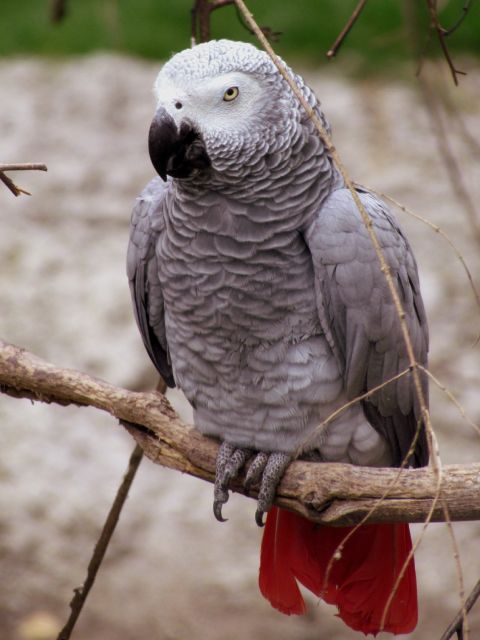
Speaking words is one of many talents of the fantastic parrot. They are also known for being able to imitate things like phones, microwave ovens, answering machines, other birds, and chainsaws.
The average life expectancy of an African grey is approximately 50-70 years.
Greys are well known for their talking abilities and can build up a vocabulary of hundreds of words, phrases, and noises. Research has proved that Greys are intelligent enough to mimic and understand human language and communicate wants and feelings, among many other clever things.
Some people are put off African greys because they think they are ‘cold’ and too independent. But, while greys are more independent, they are also highly affectionate and loving. They provide hours of entertainment and joy.
Differences Between Congo Greys and Timneh Greys
There are two main recognized subspecies of African Grey. The Congo African Grey and the Timneh African Grey. They come from different areas of Africa and have some slight physical differences.
The Congo Grey has an all-dark gray/black beak, whereas the Timneh Grey has a light-colored patch on its upper mandible. The Timneh is also slightly smaller and has a duller red tail than the Congo.
In terms of behavior, the Congos are highly susceptible to developing bad behaviors and you must stop these when they start. Timneh is often considered the more nervous of the two. Typically they require a considerable amount of attention and can develop some behavior issues if that attention is not provided to them.
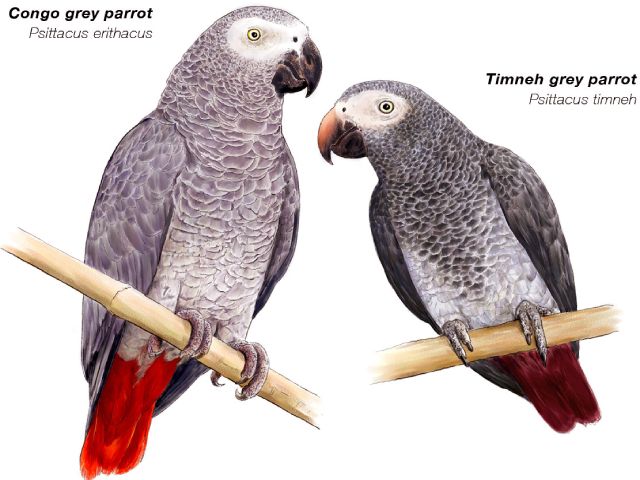
How Intelligent Are African Greys
African Grey Parrots are so intelligent and observant that they often notice everything that goes on in the house. They study every movement and reaction, plus they know how to get their owner’s attention whenever they want it. They are even capable of cause-and-effect thinking. Because this bird is so intelligent it’s important to keep them stimulated while you’re away. Natural parrot toys are a great way to accomplish that.
For example, many African Greys observe their owners running to the phone whenever it rings or to the microwave whenever it beeps. Then, they learn to mimic those sounds to make their owners run to them.
The most incredible aspect of African Grey parrots is how they bond with humans. They can interact so thoroughly that many people relate to them as if they are human. They are, however, still wild animals and it is important to be careful as you grow with them and train them to be good family members.
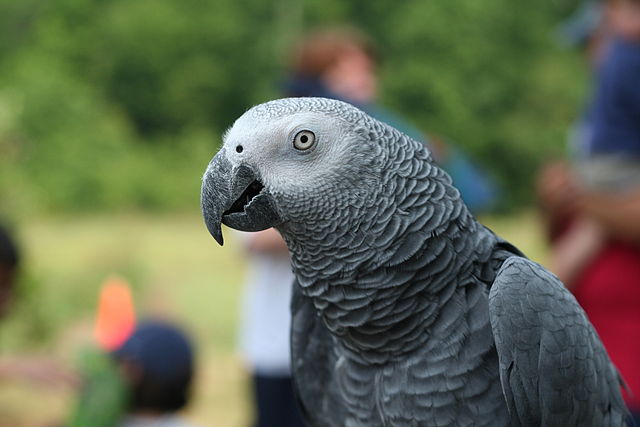
When do African Grey parrots start talking?
In rare cases, 3-month-old Greys have been observed trying to “talk.” Generally, for the first nine months in their new home,
Greys absorb the sounds around them and will expand their vocabulary of whistles and sounds. By their first birthday, they should be talking quite well; if you have been taking the time to work with them. Greys are very social: they enjoy talking with you.
Is it hard to teach an African grey parrot to talk?
Greys are considered the most intelligent of talking birds. There are three basic teaching methods, but a key element is the strength of the bond between owner and pet. First, greys will build a “family” vocabulary: learning the names of family members or pets and picking up frequently repeated expressions. (Watch your language!) Second, you may make, or use pre-recorded CDs to train your bird while you’re away. Third, you may use repetition to “drill” your bird on words and phrases you want it to learn.
How large can an African Grey’s vocabulary be?
A grey’s vocabulary can be immeasurable. A skilled talker would have about 200 words. At a minimum, you could expect a vocabulary of around 100 words.
Do African grey parrots understand what they’re saying?
In a contextual sense, apparently, yes. For example, if you’re coming home, your Grey won’t say “goodbye;” similarly, if you leave for work in the morning, the bird knows better than to say “hello.” African Greys can also count numerically and recognize shapes and colors.
Do Greys make good family pets?
Yes. African Greys are noted for their sociability and will bond with anyone who spends time with them, even other pets. At the same time, if one family member spends most of the time with the bird while others ignore it, the grey may become a “one-person pet.” It’s also important to remember that, in the early stages of their life, African Greys are “children.” Like any other pet, a cat or a dog, they need to learn the rules of your home. There are several approaches to training and “discipline.”
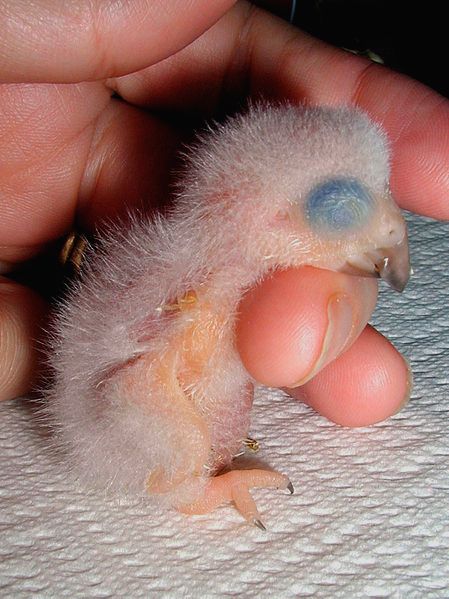
What about my parrot’s health and feeding – any special needs?
African Grey parrots are a hardy, healthy species with a life expectancy of 70 years and more. A balanced diet is important but not particularly challenging. The worst thing you can do is feed your Grey bird seed. It has virtually no nutritional value. Calcium supplements in the form of cuttlebones are helpful. Diet isn’t the only factor. Make sure your grey has many opportunities to exercise, in and out of the cage. (You can clip the bird’s flight feathers to limit its flying ability.)
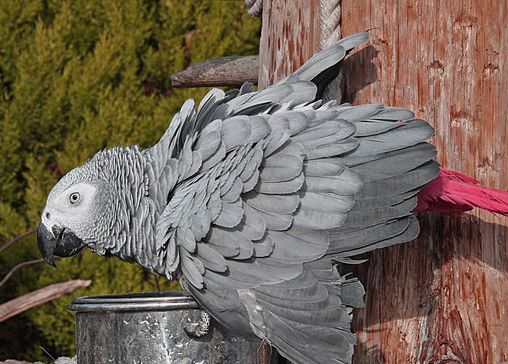
How big should my parrot’s cage be? What about toys, perches, etc.?
This may depend on your bird’s wingspan, but generally speaking, a cage two feet deep, 30 inches (1 inch=2.54 cm.) across, and 30 inches high will comfortably house your Grey. Perches, toys, bells, and talk-back toys encourage exercise in the cage. Additionally, your Grey should have a perch and play area outside the cage; you can arrange it beside or atop the cage and needs to be allowed out of the cage when family members are home.
What will l do for my African Grey parrot when I go on holiday?
You can give your parrot to a friend to look after when you are away or board them at a bird store. In both cases, the problem is that the bird can be stressed because it will miss you. They will be troubled and probably will begin to eat nothing. But also, how the bird will react depends on the bird’s personality. Do a test run if you leave your Grey with a friend or board at a bird store.
Let your friend or the vet take care of the bird for a few days while you are still home. So in case of a problem, you will be close by. This way, you can see how your bird will react. If you want to board them at a bird store, look for one that requires a certificate of health, that way, your birds won’t get infected while they are away.
You can also leave your parrot at home. What is sometimes hardest for them is the change of location. But `definitely` someone must come to your home to feed, clean, and check on your bird. Your parrot also needs to get attention for a few hours each day.
